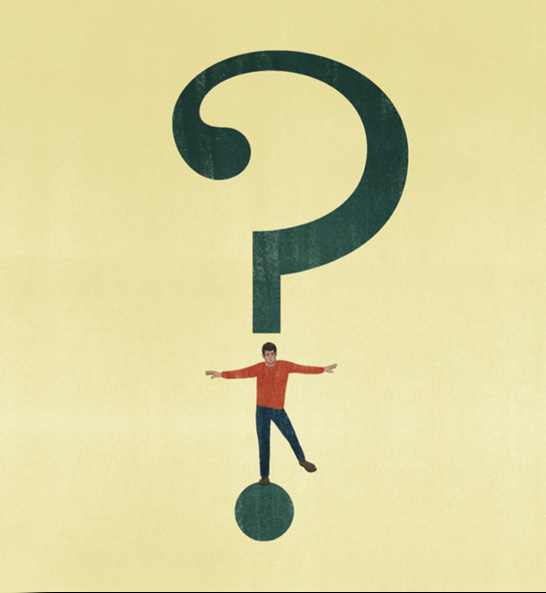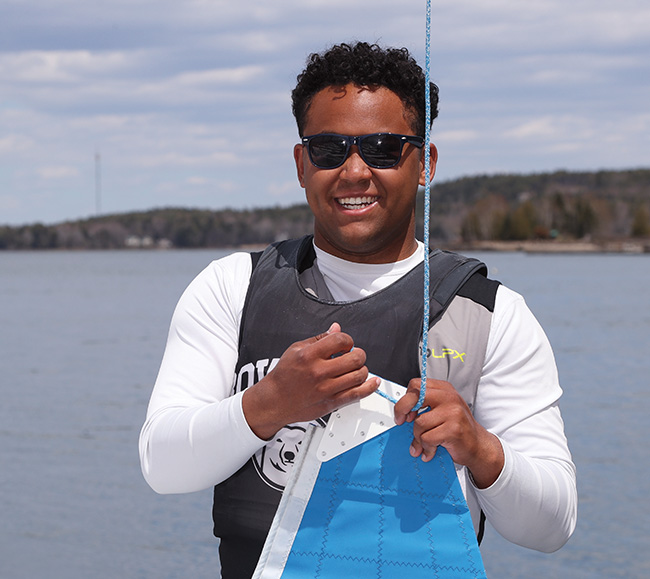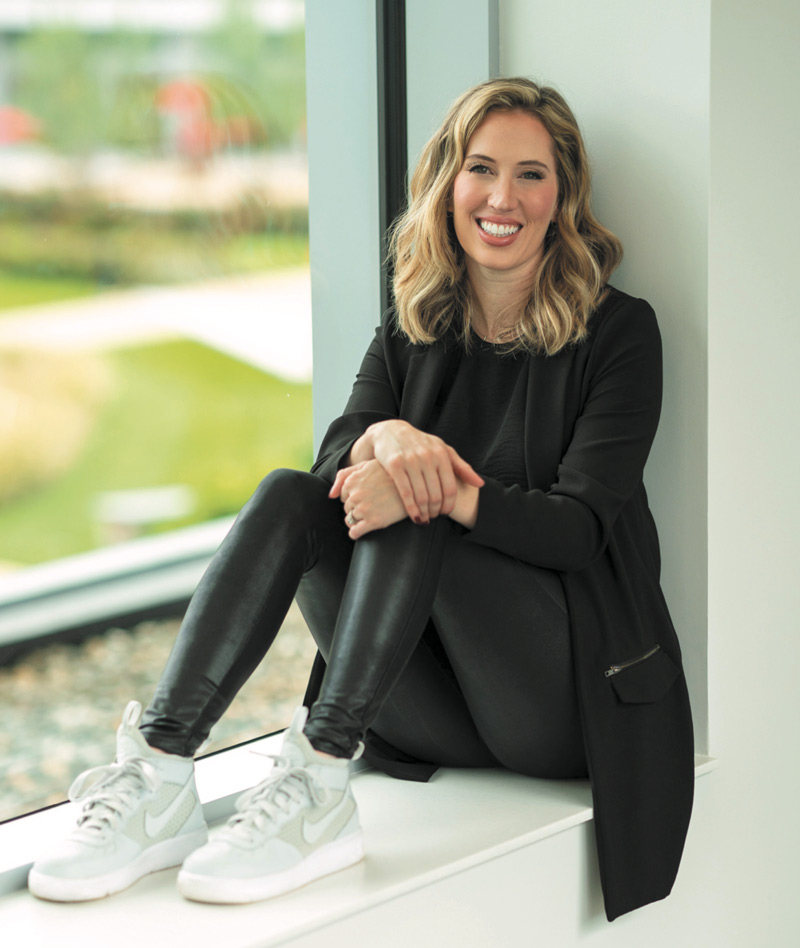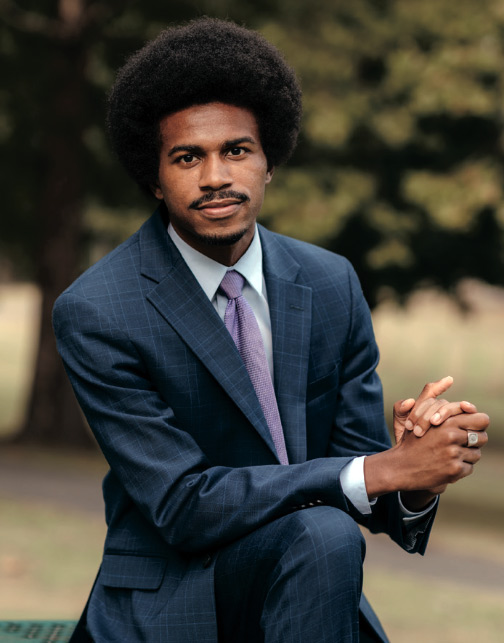Grateful for Life
By Bowdoin MagazineSam Popkin ’77, an expert on the psychology of aging, counts himself lucky.

What inspired you to a career in clinical psychology?
I knew from an early age that I was a people person and had good interpersonal skills. I took a class in introductory psychology in high school and realized that this was a possible career path for me. At the time, it was terribly important to me that I choose a career I could excel in and achieve recognition for. The careers I considered were in music performance and clinical psychology. I came to terms with the fact that I was not a good enough performer to succeed in music, so I eventually opted for the psychology route. Fortunately, my love of psychology outlasted my search for fame.
How did your career unfold?
Two things had a central role in my eventual choice of doctoral programs and the roads that would follow. One was my association with Professor Matilda White Riley. She was a terrific role model for many of us, and of course her area of expertise was the sociology of aging and older adulthood. As such, my eventual specialty in clinical geropsychology started to come into focus.
The other catalyst was the summer job I had right out of Bowdoin in 1977. I was a psychology technician for the VA Outpatient Clinic in Boston. The geriatric psychology department was led by two renowned researchers, James L. Fozard and Leonard W. Poon. In essence, the shape of my career formed quickly and naturally. I had excellent mentorship in the process. I will never forget that Dr. Fozard asked me to be the coauthor of a comprehensive article on the psychology of aging that was published in the journal American Psychologist. This was a huge honor, especially for such a young trainee.
You’ve worked with veterans and with others in the treatment of pretty tough stuff: depression, anxiety, trauma. What do you find rewarding about that work?
One significant reward was that, right up until the time of my retirement in 2021, I was engaged in clinical work that brought hope to many people who felt hopeless as well as skeptical about receiving mental health services from the Department of Veterans Affairs. They had pretty good reasons for this. I truly believe that the therapeutic relationship I was able to establish with so many of them over the years was the single most important factor in their recovery. I also quietly fought against time-limited treatment and gave these men and women as much time as I was allowed. The most compelling reward is that I have been told over the years by many veterans that, had they not met and worked with me, they would have suicided—and I believe them. I’m not sure anything could be more rewarding than knowing I saved and improved people’s lives.
You’ve also worked a great deal in the psychology of aging—what have you learned about that and has it changed the way you see yourself as you age?
I’ve learned that it is utterly inappropriate to treat older adults as a homogenous population. There is incredible diversity in all aspects of our lives and our physical being that deserve respect. Something else that I have learned at a deeper level is that, for most people, advanced aging is their fate and warrants preparation. I am now, especially since retirement, much more in touch with and considerate of my mortality and the reality that our lives are temporary. I have done a lot of planning to reduce the burden of my departure on my loved ones.
I often note that we talk about older adults using the pronoun “they,” as if the elderly have nothing to do with us. The simple fact is that they are us! We might be able to embrace “them” if we proactively came to terms with this in life. Finally, one of my unintended preparations for the end of my life is that I wrote a memoir over the past year (Scenes Through the Narrow Window). One such scene has to do with the importance of active life review in one’s later years. The scene is called “The Power of Then” to draw contrast between the teachings of Eckhardt Tolle (author of the extremely popular self-help book The Power of Now) and my own experiences as a retired, aging human being.
Are there ways that your academic or extracurricular work at Bowdoin has come into play in your life or career?
Oh, my, yes. In some ways, the liberal arts education I received at Bowdoin has been more influential over the years than all that I learned in graduate school. Bowdoin was my “last chance” to experience the benefits of exposure to so many wonderful disciplines and ways of thinking. Graduate school can have a narrowing effect on how one thinks professionally and on what one thinks about, but it does not have to be that way. The Bowdoin years taught me how to be inclusive in my thinking. I have a scene in my book simply called “Order and Contrast,” in which I discuss the implications of convergent and divergent styles of thinking. Maintaining order in our professional orientations is very comfortable but does not necessarily promote growth. Bowdoin promotes growth.
What brought you to Bowdoin?
In all honesty, it was under fortuitous circumstances. For most of my high school junior and senior years, I was very focused on pursuing a music degree from some very prestigious places with exceptional music schools (e.g., Eastman School of Music, Yale School of Music). When I visited them for informational interviews, the environment was so intimidating that I felt completely out of place there. I was relieved by changing my focus in my senior year to a liberal arts program with a good psychology department. My mother’s college roommate was Judy Kamin of Brunswick, whose husband, Joe Kamin, was a beloved public relations director for Bowdoin. They strongly encouraged me to apply, even though I really didn’t know quite what I was doing at that point. I feel lucky to have stumbled upon Bowdoin, very lucky. The journey began with a letter whose first words were, “You’re in!”
What inspires you?
Four things come to mind: music, spiritual experiences, role models, and heroism.
There is so much music that is inspiring, but I have focused my adoration on master guitarist and composer Pat Metheny for decades now. I saw his recent solo tour in Birmingham and was in tears thinking about how fortunate I have been to have been able to have his music in my life for close to fifty years.
There are numerous experiences in my life that I deem spiritual, some of which have been in the context of organized religion, and many of which have just blossomed from life itself. In my memoir, I discuss what I think was probably the first such experience that I had during a childhood sleepover.
I am truly inspired by so many role models I have had, most of whom have gifts that are manifest in their achievement of phenomenal things. While inspiring, it can be intimidating to read about the accomplishments of so many alumni in Bowdoin Magazine. I admit that, historically, I have tended to admire others far more than myself.
I’m inspired by courage and its empowerment of people we think of as heroes. You might say that such people are often those who make extraordinary sacrifices for the common good! We have always had room for heroes, and we need them now more than ever. Courage at any time and of any size is both heroic and inspiring to me.
Is there something about your work or life that others would find surprising?
I think many readers who know or knew me would be quite surprised to learn that I was baptized into the Episcopal church and was deeply involved in its music ministry for about nine years. That is a very long, personal story, and while I’m not trying to pitch my book, the details are in a scene called “Coming out Christian.”
Is there something about YOU that others might find surprising?
I’ll give you two, one heavy and one humorous. First the heavy: I have had chronic lymphocytic leukemia for several years, but which is so slow growing that I am likely to die before even needing treatment for it. Talk about miracles! And the humorous: I am able to play tunes on my teeth using my thumbnail.
What do you enjoy doing in your spare time?
Two years ago, I was playing in a Beatles cover band called Noyoko, which was way fun. My wife, Mary Weekes, is a member of a local UU church, and she nudges me to sing there on occasion, which I greatly enjoy. While not a member, I am a close friend of Mary’s church and participate in a number of ways. I was consumed with writing my memoir over the past year, all of which was a spare-time preoccupation. I vow to get back on my keyboard now that the book is done. I enjoy playing with our dog, Mija, and I do chair yoga and speed walk on an indoor track few times a week. Mary and I venture out often and have a number of very good friends we are close to.
Best Bowdoin memory, or most-lasting lesson from your Bowdoin days?
This is the most difficult question, because there is so much from which to choose. But it seems fitting to close with the memory that seems to rise above all the others. It was 1977, and I was actually on my way out of Bowdoin, when Professor of Music Elliott Schwartz and I said goodbye to each other. He looked at me with depth and sincerity, and with that cute smile of his said, “You would have made a great music major.” How beautiful and ironic is THAT?!
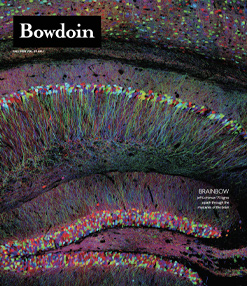
This story first appeared in the Spring 2025 issue of Bowdoin Magazine. Manage your subscription and see other stories from the magazine on the Bowdoin Magazine website.
